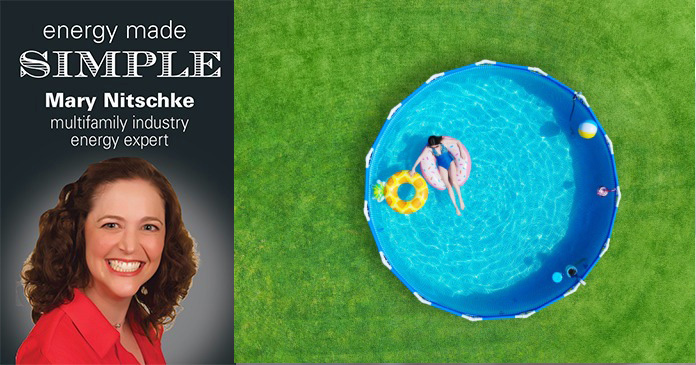As I have shared before, I grew up in a rural part of California in a farmhouse built in 1913 which was surrounded by 1.5 acres of grapes, oranges, walnuts, and various farm structures. It was a miracle the house was still standing when we moved in given the semi-chewed condition of the knob and tube wiring. We did all renovating of the farmhouse ourselves.
If you are unfamiliar with the Central Valley of California, it is stupidly hot in the summer. If you do not have proper air conditioning (which we did not) you will sweat profusely. We needed a way to cool off. My brother and I shared our idea of swimming in the nearby canals, which my mother promptly forbade. We needed a pool. After the electrical renovation was done, we dug a giant hole in the ground and put in a doughboy pool. We were classy like that. As we filled it from the hose, my mother turned to my father with crazy eyes and said, “It’s going to be too cold to get in there!” My father just laughed, sweat dripping down his check and replied, “the sun will heat it.”
As we approach May, when most of us open our pools for the summer use of our residents, I think about my dad. Although I will not admit this to him, he was right. If you haven’t evaluated solar thermal (the fancy pants term for heating water using the sun) in a while, you should. Even in milder climates (like the Bay Area of California) solar thermal can have a payback period of less than 12 months with no rebates or alternative funding sources. Even if you have a short-term hold strategy, that is an attractive rate of return. Solar heating for your pool should be your bare minimum objective.
For those of you who are taking solar to the next level and evaluating photovoltaic panels and battery storage, I propose that you also evaluate solar thermal for your domestic hot water heating. Typically, unless each unit has its own hot water heater, large natural gas fired commercial grade systems are used to supply the units with hot water. These systems usually have large hot water storage tanks. Why not put in a solar thermal system to heat that water? Yes, people use hot water at night, but for the most part, that hot water is just sitting in the tank. If the tank is properly insulated, the temperature of the water is not going to plummet when the sun goes down.
Using solar thermal to assist in heating your water helps you reduce your natural gas (Scope 1) emissions. If you are facing requirements for building performance standards (BPS), you may want to evaluate the payback of this approach to see if it is attractive.
My sweaty father was right. The sun will heat it. The real question is, how will we leverage it?














